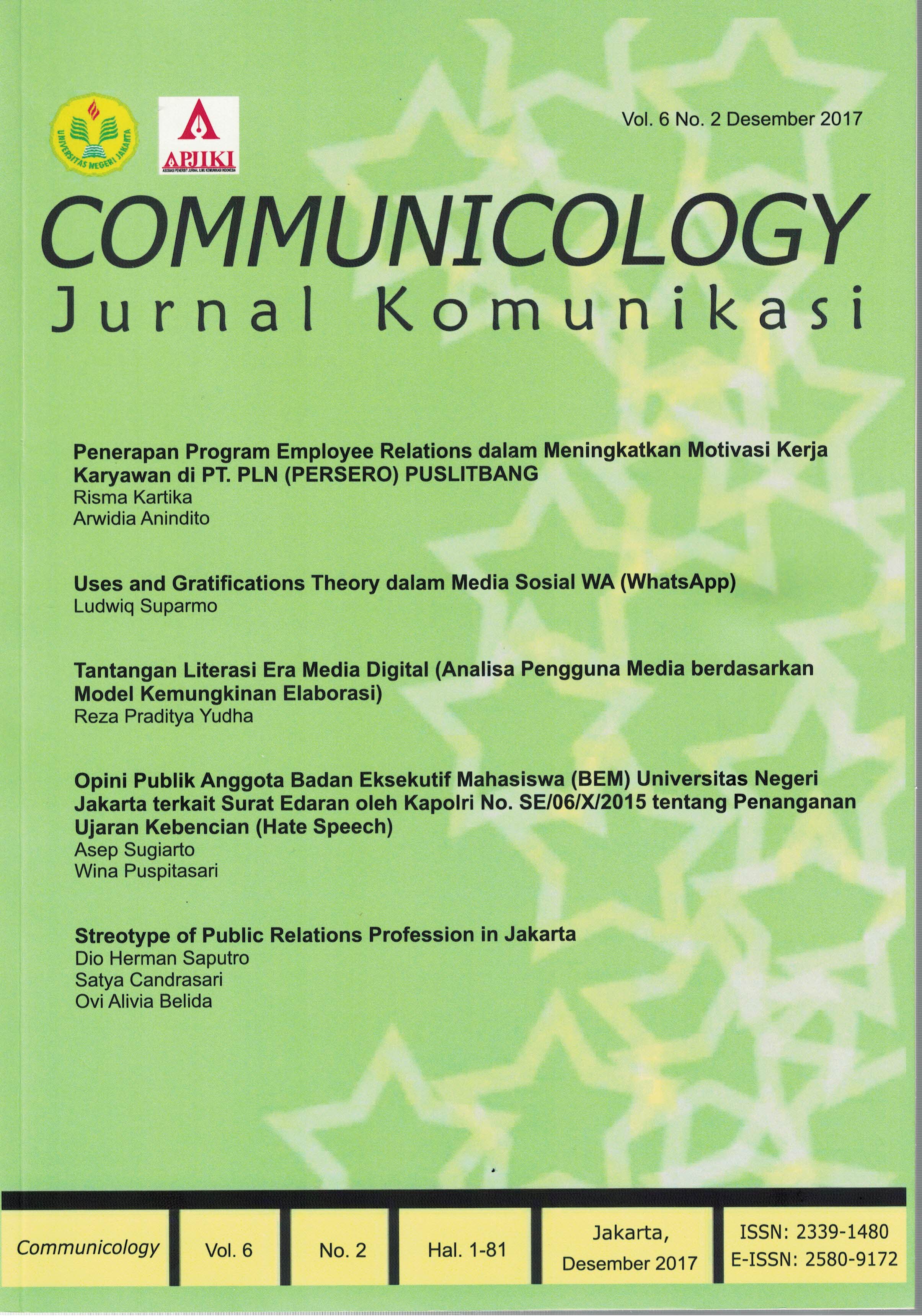Uses and Gratifications Theory dalam Media Sosial WA (WhatsApp)
DOI:
https://doi.org/10.21009/communicology.062.02Keywords:
uses and gratifications theory, sociological dimension, Character and Culture, mass media, social mediaAbstract
It has been known for decades that the conventional mass communications have been eroded and transformed due to the information technology into advanced means of communication. One of these has become viral as the social media through WA (whatsApp) application, which surely has brought a phenomenal effect on the uses and gratifications theory that was more applied on mass communications. The research based on a qualitative methodology exploring to several WA Groups has revealed the rank of uses and gratification in using the WA social media.
References
Bungin, Burhan. (2001). Metodologi Penelitian Kualitatif. Raja Grafindo Persada, Jakarta
----------. (2001). Metode Penelitian Sosial: Format-Format Kuantitatif & Kualitatif, Airlangga University Press, Surabaya
Freud, Sigmund. (1963). Character and Culture, (Philip Rieff, Ed.), Collier, New York
Griffin, EM. (2006). A First Look at Communication Theory, Sixth Edition. McGraw-Hill, New York
Littlejohn, S.W; Foss, K.A. (2008). Theories of Human Communication. Thomson Wadsworth, Belmont, USA
McQuail, Denis, (2005) McQuail’s Mass Communication Theory, SAGE Publications, London
Moleong, Lexy J. (2008). Metodologi Penelitian Kualitatif. Rosdakarya, Bandung
Downloads
Published
How to Cite
Issue
Section
License
Authors who publish with this Journal agree to the following terms:
- Author retain copyright and grant the journal right of first publication with the work simultaneously licensed under a creative commons attribution licensethat allow others to share the work within an acknowledgement of the work’s authorship and initial publication of this journal.
- Authors are able to enter into separate, additional contractual arrangementfor the non-exclusive distribution of the journal’s published version of the work (e.g. acknowledgement of its initial publication in this journal).
- Authors are permitted and encouraged to post their work online(e.g. in institutional repositories or on their websites) prior to and during the submission process, as it can lead to productive exchanges, as well as earlier and greater citation of published works.
Users/public use of this website will be licensed to CC BY





